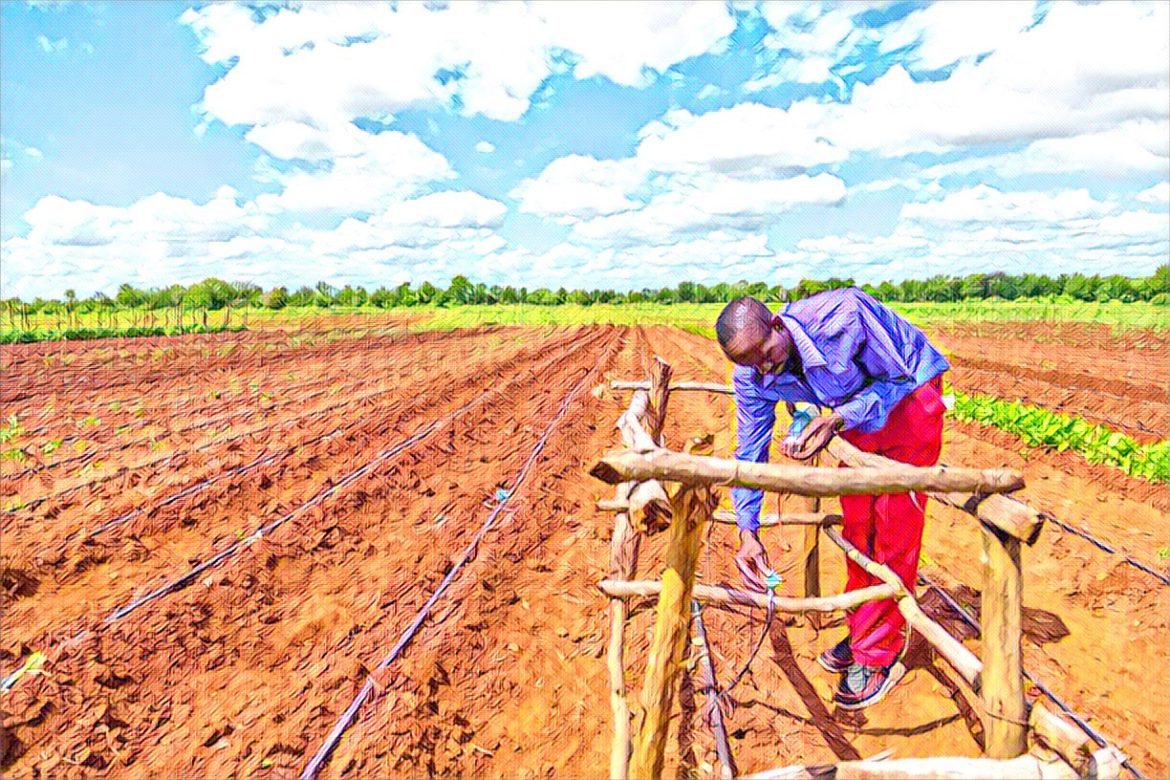Zimbabwe is bracing for a severe food shortage in 2024 as the country expects to harvest only 1.1 million tons of maize, its staple crop, due to an El Nino-induced drought.
The southern African nation needs at least 1.8 million tons of maize annually for human consumption, according to Finance Minister Mthuli Ncube. He said the agriculture sector would shrink by 4.9% next year as a result of the dry spell.
El Nino is a natural climate phenomenon that causes warmer-than-average sea surface temperatures in the Pacific Ocean, leading to changes in global weather patterns. It is associated with reduced rainfall and higher temperatures in southern Africa, affecting crop production and livestock survival.
Zimbabwe is not the only country in the region facing the threat of El Nino. The United States Agency for International Development’s (USAID) Famine Early Warning Systems Network (FEWS NET) has warned that governments, donors, and humanitarian agencies must prepare for high food assistance needs in Zimbabwe, Malawi, Mozambique, and Madagascar throughout 2024 to early 2025.
Zimbabwean farmers have delayed planting maize amid scorching heat and dry conditions. By 10 December, only 95 156 hectares of land had been put under summer crops, mainly grains, a sharp decline from 465 707 hectares by the same time last year, the cabinet said on Tuesday.
The situation is worsened by the economic crisis that has gripped Zimbabwe for decades, marked by hyperinflation, currency instability, fuel shortages, and power cuts. Many farmers struggle to access inputs such as seeds, fertilizers, and pesticides, while others have abandoned their fields due to lack of irrigation facilities.
The government has launched a drought mitigation program that includes importing grain, providing subsidized inputs to farmers, drilling boreholes, and rehabilitating dams. It has also appealed for international support to avert a humanitarian disaster.
However, some analysts say the government’s response is inadequate and poorly coordinated, and that more needs to be done to address the root causes of food insecurity, such as poor governance, corruption, and land reform.
“The government is not doing enough to mitigate the effects of El Nino. They are just reacting to the situation instead of being proactive,” said John Robertson, an independent economist based in Harare.
He said the government should invest more in irrigation infrastructure, promote crop diversification, and improve the agricultural extension service. He also called for a review of the land reform program that redistributed white-owned farms to black Zimbabweans, saying it had reduced productivity and output.
“The land reform was a disaster. It destroyed the commercial farming sector and created a lot of inefficiencies. The government should admit its mistakes and correct them,” he said.
Despite the bleak outlook, some farmers remain hopeful that the rains will come and salvage their crops. They also hope that the government will honor its promises and provide them with the necessary support.
“We are praying for rain. We have not given up yet. We still have faith that we can harvest something,” said Tendai Moyo, a small-scale farmer in Mashonaland Central province.
He said he had planted maize on his two-hectare plot, but the plants were wilting due to the heat. He said he had received some seeds and fertilizers from the government, but they were not enough.
“We need more assistance from the government and other partners. We are facing a serious food crisis and we need all the help we can get,” he said.
Source: New Zimbabwe


